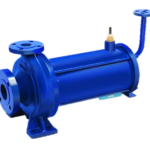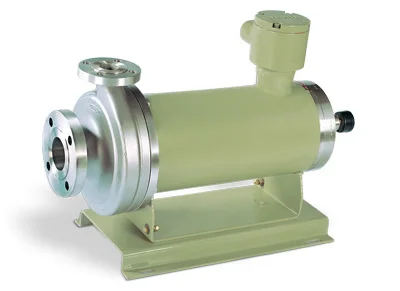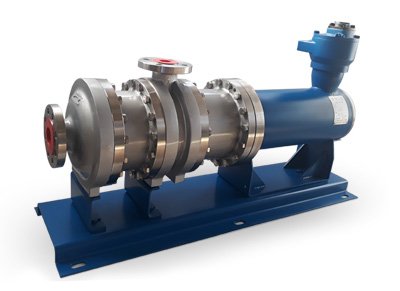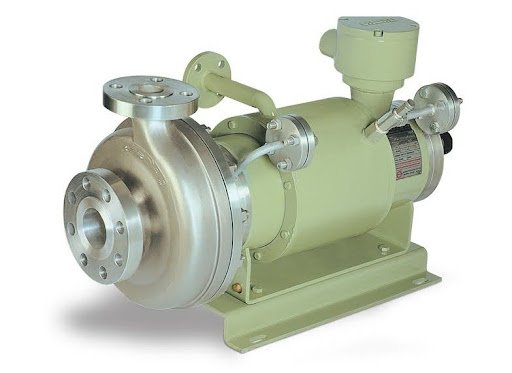
Top 10 Industrial Pump and Motor Innovations Transforming the Industry in 2024
October 14, 2024
How Refrigerant Pumps Improve Efficiency in Industrial Refrigeration Systems
November 27, 2024Canned Motor Pumps are one of the most well-known and used methods, and they are reliable and leak-proof while handling hazardous or volatile fluids. These pumps complete testing and performance evaluations to ensure efficient functioning, thereby preventing the risk of costly downtime and guaranteeing safe operations. For industries looking for reliable equipment, Hydrodyne Tikoku comes in quite handy. We know how to test canned motor pumps in and out that can radically enhance overall performance and longevity.
Understanding the fundamentals of canned motor pumps
Canned motor pumps are centrifugal pumps with an exceptional design. They integrate the motor and pump in a single, hermetically sealed unit. This construction eliminates the need for mechanical seals, which lowers the probability of fluid leakage, thus making the pumps suitable for handling toxic, flammable, or highly reactive fluids. With the significance of regular testing is the most effective way to keep canned motor pumps safe and running in India and worldwide.
Unit Pump Simple Testing and Evaluation Techniques
1. Hydrostatic Testing
Hydrostatic testing is a basic test used to determine the pressure capability of a Canned Motor pump. In a test, the pump is filled with a fluid, and pressure is applied on it beyond its max steady-state operating pressure. Such conditions are replete with actual operating conditions, and structural or seal deficiencies may be detected. Only with this confidence can a canned motor pump take even the most challenging situations, and any company will rely on its equipment to work as expected under ordinary loads.
2. Performance Curve Testing
Performance curve testing comes in handy when one wants to know the efficiency of a canned motor pump. A comparison between actual performance and the specifications given by the manufacturer will show if it performs at ideal levels. Flow rate, head, and power consumption are measured and plotted against the pump’s performance curve. If the readings deviate significantly from what is expected, they might indicate wear or blockages, and thus, there is a need to perform maintenance.
3. Vibration Analysis
Vibration analysis is a diagnostic method that will monitor the mechanical health of a canned motor. High vibration often calls for some problems, either misalignment and imbalance or perhaps bearing problems. Sensors are attached to the pump during testing to measure the vibration levels. High vibration levels may lead to premature wear, so addressing their root causes can prevent damage and extend the lifespan of a pump. The checkups ensure that problems are detected early so corrective action can be taken before they become uncontrollable.
4. Thermal Testing
Thermal testing checks the temperature rise of the canned motor. Excessive heat can deteriorate componential functions and pump performance. Thus, recording the temperature rise under standard running conditions would be necessary. This test then guarantees that a Canned Motor Pump In India would still perform without failure despite the fluctuation in ambient temperature. Thermal testing can identify overheating problems that regular maintenance could have prevented.
5. Leakage Test
Leak testing is crucial in canned motor pumps, particularly if dangerous or flammable fluids are used. This means that the hermetically sealed unit remains tight-free so that there are no fluid leaks inside, which would cause safety hazards or contamination. The testing is done by filling the pump with pressurized fluids; sensors at certain points monitor the leakage points. Periodic leak tests on canned motor pumps will ensure safe operation, especially in sensitive environments such as chemical processing and petrochemical plants.
Regular servicing and testing canned motor pumps ensure smooth operation and efficient performance. Preventive maintenance, leak checking, and temperature and vibration checks are planned before major breakdowns occur, thus avoiding long periods of unused operating time. The longer the equipment is preserved in working condition, the less power it will consume, which directly translates to lower operational costs in the long run.
Canned motor pumps in India have gained wide industry usage due to advanced maintenance practices. They can only ensure long-term reliability through an active maintenance plan and regular testing.
Conclusion
Testing and performance evaluation must be done with the help of Canned Motor Pumps if their operations are effective and risk-free. Hydrodyne Tikoku assures that every minor test is carried out correctly. Each test process evaluates various performance characteristics of the pump, hydrostatic testing for leak checking. A meaningful evaluation ensures that a canned motor pump operates satisfactorily, meets performance specifications, and is reliable over time. Several industries in India could always rely on Hydrodyne Tikoku to perform canned motor pumps precisely.





